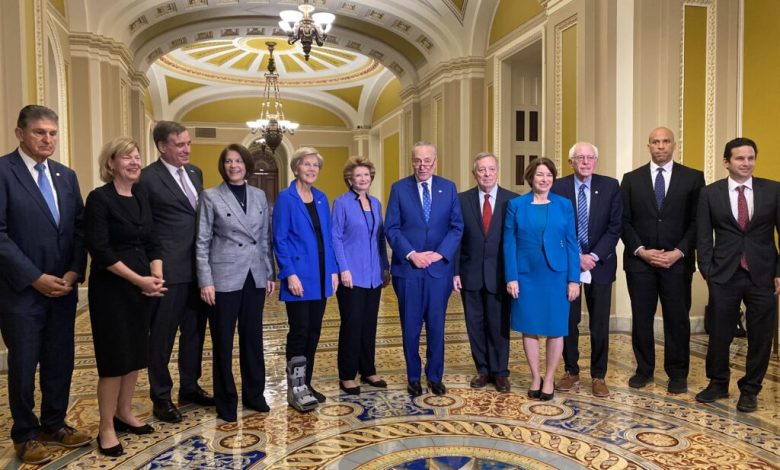U.S. Senate Democrats Grill Pharma CEOs Over High Drug Prices

On Thursday, U.S. Senate Democrats took a hard stance on the issue of prescription drug prices, grilling three prominent pharmaceutical executives in a bid to secure commitments towards lowering the soaring costs. However, despite rigorous questioning, the executives—Chris Boerner of Bristol Myers Squibb, Robert Davis of Merck, and Joaquin Duato of Johnson & Johnson—remained steadfast in their refusal to pledge any reductions in drug prices.
The hearing, chaired by Senator Bernie Sanders of the Senate Committee on Health, Education, Labor, and Pensions (HELP), saw Boerner, Davis, and Duato facing tough inquiries. Notably, Davis and Duato’s appearance was prompted by a subpoena threat issued just a week prior, highlighting the contentious nature of the proceedings.
Central to the discussions was the glaring disparity in drug prices between the United States and other countries such as Canada. While pressed on this issue, Boerner emphasized concerns regarding access and availability of medications in countries like Canada, hinting at potential drawbacks of lowering prices.
Senator Sanders, however, countered this argument by pointing out that despite lower drug prices, countries like Canada and Japan boast higher life expectancies. This contradiction raised further questions about the rationale behind the exorbitant prices charged in the United States.
Acknowledging their profitability in countries with significantly lower drug prices, the CEOs maintained their stance, emphasizing the complexities of the pharmaceutical market. Their reluctance to commit to price reductions echoed the broader challenges facing efforts to tackle escalating healthcare costs.
The hearing coincided with the Biden administration’s implementation of a groundbreaking drug price negotiation program under the Inflation Reduction Act, targeting the Medicare health plan for seniors. However, the pharmaceutical industry’s fierce opposition, manifested through lobbying efforts and legal challenges, underscored the uphill battle in reforming drug pricing policies.
During the proceedings, the executives attempted to shift blame onto pharmacy benefit managers (PBMs), citing their role in negotiating prices. However, Senator Sanders highlighted the substantial profits garnered by pharmaceutical companies, raising questions about their priorities and allocation of resources.
The scrutiny on PBMs intensified, with ongoing investigations and legislative proposals aimed at increasing transparency in their fee structures. Despite their significant influence, PBMs faced mounting pressure to justify their role amidst concerns over rising healthcare costs.
Sanders underscored the extensive lobbying efforts by both the pharmaceutical industry and PBMs, signaling a broader pattern of influence in shaping healthcare policies. Despite these challenges, the hearing marked a pivotal moment in the ongoing debate over prescription drug pricing, highlighting the urgent need for systemic reforms to ensure affordable access to essential medications.





